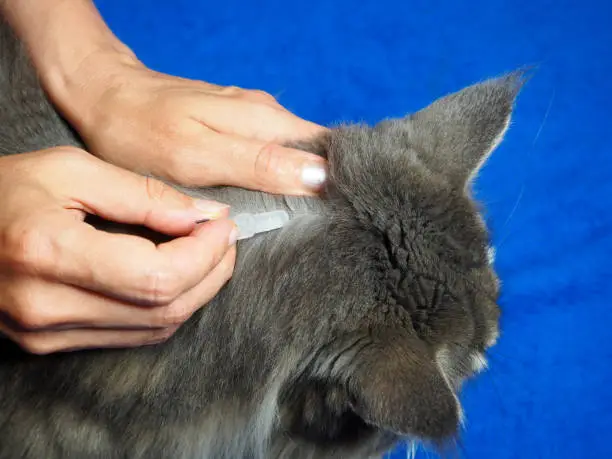When your cat won’t stop scratching, licking, or developing patches of inflamed skin, it could be due to an allergy. Cat skin allergies can be frustrating for both cats and their humans. The good news? You don’t always need expensive prescriptions. Many mild to moderate cat skin allergies can be addressed with gentle, home treatments that provide real relief.
In this article, we’ll cover signs of skin allergies in cats, common causes, and natural home remedies that actually work.
What Are Cat Skin Allergies?
A skin allergy in cats is typically caused by the immune system overreacting to something harmless, like a food ingredient, environmental factor (like dust or pollen), or flea bite. This triggers inflammation, itching, and skin problems.
Common Symptoms of Skin Allergies in Cats
- Excessive scratching or licking
- Red, inflamed patches of skin
- Scabbing or crusty areas
- Hair loss or bald spots
- Sores or open wounds from constant scratching
- Chewing on paws or limbs
If these symptoms persist, it’s best to consult your vet. But if your cat has mild symptoms or is waiting for an appointment, these home treatments can help in the meantime.
What Causes Cat Skin Allergies?
Understanding the root cause helps in preventing future flare-ups. The most common triggers include:
- Fleas – Even one bite can cause a major reaction in sensitive cats.
- Food allergies – Often related to chicken, beef, dairy, or grains.
- Environmental allergens – Like pollen, mold, or household dust.
- Contact allergens – Such as certain laundry detergents, plastic bowls, or cleaning products.
🐾 Natural Home Treatments for Cat Skin Allergies
Here are safe, effective home remedies you can try right away.
1. Oatmeal Baths (Soothing and Anti-Inflammatory)
How it helps: Oatmeal reduces inflammation and soothes itching.
How to use:
Use plain, unflavored colloidal oatmeal (found in pharmacies or made by grinding plain oats into a fine powder). Mix into lukewarm bathwater and gently rinse your cat. Don’t force a full bath if your cat hates water—just apply it with a warm cloth to itchy areas.
2. Coconut Oil (Natural Moisturizer & Antimicrobial)
How it helps: Coconut oil soothes dry skin, has antimicrobial properties, and reduces itching.
How to use:
Apply a small amount to affected areas 1–2 times daily. Make sure your cat doesn’t lick it all off immediately.
3. Apple Cider Vinegar Spray (For Yeast or Bacterial Infections)
How it helps: ACV can rebalance skin pH and fight bacteria or yeast overgrowth.
How to use:
Dilute 1 part raw, organic ACV with 2 parts water. Spray lightly onto irritated skin. Do not apply to open wounds, as it will sting.
4. Aloe Vera Gel (Cooling and Healing)
How it helps: Aloe soothes redness and promotes healing of minor abrasions.
How to use:
Only use pure aloe vera (no alcohol or additives). Rub a small amount onto itchy or inflamed skin. Keep your cat from licking it off until absorbed.
5. Omega-3 Supplements (Long-Term Support)
How it helps: Omega-3 fatty acids support healthy skin and reduce inflammation.
How to use:
Add a high-quality fish oil supplement to your cat’s food daily. Look for vet-approved products formulated for cats.
6. Flea Prevention (Essential for Allergy-Prone Cats)
How it helps: If fleas are the trigger, prevention is key.
How to use:
Use a natural flea comb daily and wash bedding often. Consider essential-oil-based flea sprays or collars that are safe for cats.
💡 Additional Tips for Managing Cat Allergies at Home
- Use hypoallergenic bedding and wash it weekly in fragrance-free detergent.
- Switch to stainless steel bowls – they’re less likely to harbor allergens than plastic.
- Vacuum often to reduce dust mites and dander.
- Try an air purifier if environmental allergens are suspected.
- Monitor your cat’s diet – consider a limited-ingredient or hypoallergenic food trial.
⚠️ When to See a Vet
While home remedies are great for temporary relief, always consult your vet if:
- Symptoms worsen or don’t improve
- There are open sores or infections
- Your cat is in visible discomfort or losing weight
✅ Final Thoughts
Cat skin allergies can be managed effectively at home with the right natural treatments and a little patience. Whether it’s oatmeal baths, coconut oil, or dietary changes, these safe solutions provide comfort while addressing the root causes.
Looking for allergy-friendly cat products? Check out our recommended pet care essentials on Amazon for holistic options that make a difference.

